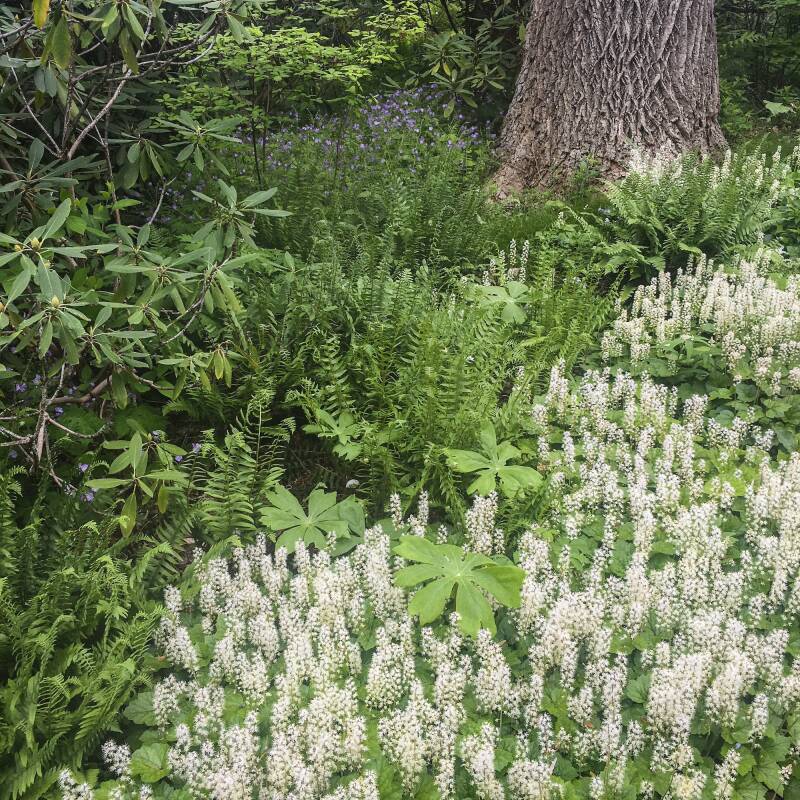It all started with just 28 seed varieties and a commitment to re-building healthy food systems. Today, after an exhaustive 2-year process, High Mowing Organic Seeds, located in Wolcott, Vermont, is the first organic seed company to guarantee that all of its 600+ varieties are non-GMO verified.
High Mowing’s seeds have always been certified organic. But as more genetically modified crops are developed, the risk of cross-pollination and pollution increases. Therefore, High Mowing Seeds founder Tom Stearns believed it was important to take this extra step and submit to the rigorous process of becoming verified by The Non-GMO Project, an independent non-profit committed to building and preserving a non-GMO food supply. It’s “an unprecedented achievement,” says Stearns. “Verification further ensures that farmers, gardeners, and consumers can feel confident about the quality and source of their seed, as well as the food grown from it.”
During my recent visit to Vermont’s Northeast Kingdom, I toured this groundbreaking company, where I got to see the commitment to quality and to the earth, evident in every step of the process.
Photographs by Justine Hand for Gardenista.

Above: Silver Slicer Cucumber seeds dry in the hoop house.

Above: High Mowing Seeds offers 14 varieties of organic corn, including sweet, popcorn, ornamental, and milling corn. It bears repeating that GMO (Genetically Modified Organism) refers to any organism that has had the genes of a different species inserted into its DNA. In traditional methods of plant breeding, only members of the same species are crossed to create new varieties. Because corn, and other crops such as soy and squash are particularly susceptible to contamination from GMOs, High Mowing Seeds will have to submit to the rigorous re-verification process on an annual basis.

Above: Much of High Mowing seed is still grown on the company’s 40-acre farm. Other seeds are procured from organic farmers both locally and across the globe.

Above: Every year, High Mowing tests nearly 1000 varieties in order to find the ones that will perform best for organic growers.

Above: Seeds are continually tested in the company’s on-site lab to ensure the highest quality standards.

 Above: On a beautiful fall day in Vermont, High Mowing Farm Manager Katie Traub washes watermelon seeds in a homemade sluice. For more on how to produce your own seed from wet-seeded crops (those inside fruit), see High Mowing’s tutorial.
Above: On a beautiful fall day in Vermont, High Mowing Farm Manager Katie Traub washes watermelon seeds in a homemade sluice. For more on how to produce your own seed from wet-seeded crops (those inside fruit), see High Mowing’s tutorial.

Above: Staff have their pick of vibrant squashes and other produce grown as part of High Mowing’s rigorous quality control process.

Above: Waiting for your order, packets of certified organic, and now Non-GMO verified, seeds line the shelves. High Mowing Organic Seeds are available via their website and at many Whole Foods Stores and at garden centers across the country. You can also request a catalog here.

 Above: Pull up a seat. Although High Mowing is no longer a one-man operation, much of the production is still done by hand. Under an outdoor canopy, the staff often enjoys coffee and a chat while shucking corn.
Above: Pull up a seat. Although High Mowing is no longer a one-man operation, much of the production is still done by hand. Under an outdoor canopy, the staff often enjoys coffee and a chat while shucking corn.

Above: Once the corn is shucked, the ears are inspected one by one, and any kernels that don’t meet High Mowing’s standards are removed by hand.

Above: Production is a wonderful mix of high tech (the machines that clean and sort the seeds) and old fashioned. In the hoop house, Charles uses a nineteenth-century corn sheller to remove kernels from the ears.

Above: A closeup of the corner sheller shows how it works. If you are interested in learning more about dry seed production, High Mowing’s blog features a lesson on that too.

Above: Against a breathtaking fall landscape, drying ears of corn peek out from under the hoop house.
To find out more about Vermont’s local food movement, see Justine’s One Cheese at a Time: Jasper Hill Farm. For our authoritative sourcebook on plants and seeds, visit Gardening 101.












Have a Question or Comment About This Post?
Join the conversation (3)